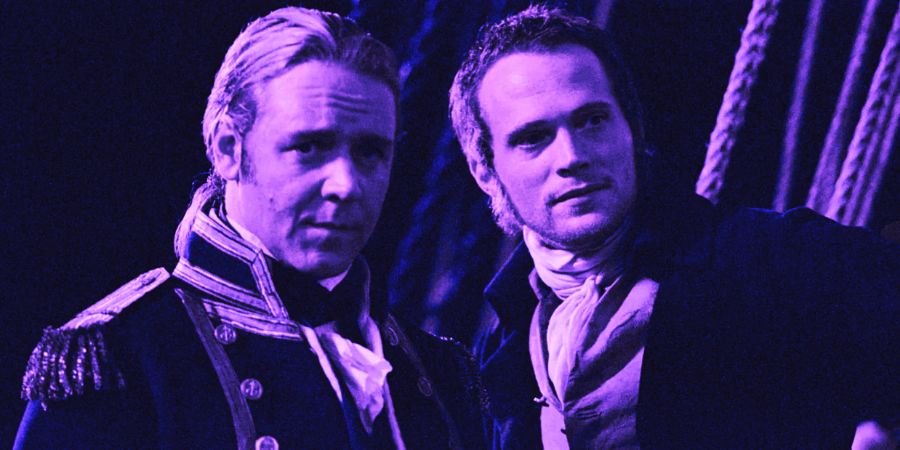First: this story is, indeed, a romance. (This is almost certainly against O’Brian’s intentions, but—here we proclaim the mystery of queer resonance in fiction—the characters speak for themselves.) Beginning with their enemies-to-lovers meet-cute (almost coming to blows over chamber-music audience etiquette), Jack and Stephen trace an arc familiar from a thousand rom-coms. After the realization that both men play themselves (violin and cello, respectively), they are soon arranging duets between naval battles.
Their deepening intimacy over the first several books is one of the series’ great pleasures: Stephen swoops in to save Jack’s reputation at a court martial; Jack goes rogue on a risky undercover mission to rescue Stephen in Minorca. Trope by trope they grow jealous over competing admirers, affectionate over trifling gifts, crabby when one of them snores or hogs the coffee pot. Eventually, they both marry—but all four participants understand that the story they’re in is the story of Jack and Stephen’s relationship.


